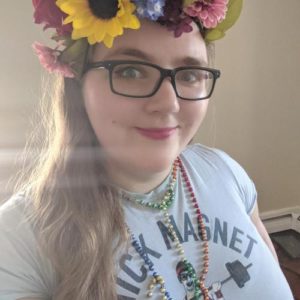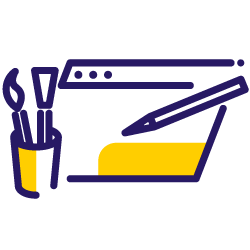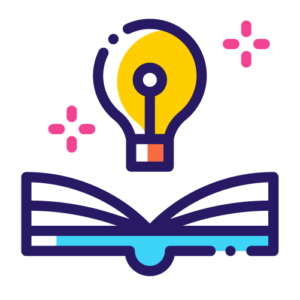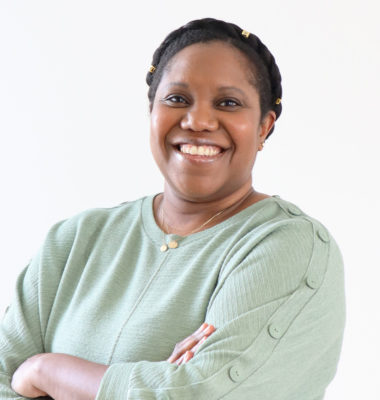We spoke with Jess Peck, a Machine Learning Ops Engineer at Local SEO Guide, as part of our project to share what Oncrawl users are doing in SEO in their day-to-day jobs.
Watch the full interview or read on for the key moments below.
Jess Peck, the unexpected path that lead to SEO
“I don’t really want to claim the title of expert, but I’m an enthusiast! I like looking at websites, finding ways to look at websites and I think it’s really fun and I like encouraging people to do the same. So I would definitely put myself in the enthusiast rather than expert category.”

With a bachelor’s degree in international relations and affairs, the leap to a career in SEO may not seem very obvious. However, Jess took the critical thinking and language skills she developed as well as her understanding of statistics and used them as building blocks along her SEO journey.
Jess: When I started my bachelor’s degree I didn’t have SEO in mind, I had grand designs to go into politics. But since then, I’ve decided other people can go into politics, I’m a lot happier working on computers. I really didn’t think about SEO or any sort of web stuff as a career until I realized that I had been doing it for a long time and I really liked it.
Oncrawl: So, can you tell us how you actually got started in SEO?
Jess: After college I was working as an administrative assistant at a home health care company and they approached me and said, “So, you’re 20, you must know computers, right?” I thought to myself, I would absolutely do anything to work on computers instead of managing paperwork right now.
So I said yes, and from there I made their website because I really didn’t want to keep scanning and faxing papers. You could say I both fell into it and kind of manipulated my way into it. I then parlayed that experience into working for an actual SEO agency.
After that, I worked for Perficient Digital where I did technical SEO. At Perficient, I’d say I somewhat became addicted to technical SEO and I really enjoyed working in tooling and toolification to figure out technical issues. Overall, my background and the way I got into SEO kind of makes sense, but the path was a bit of a windy one.
From agency to in-house SEO, and then back to agency
After her time at Perficient, Jess then moved from agency to in-house SEO and then back to working in an agency. Jess currently works at Local SEO Guide as the Machine Learning Ops Engineer.
Oncrawl: Can you tell us what your job consists of on a day-to-day basis? Or is there nothing you do on a day-to-day basis, does it change every day?
Jess: My work is pretty consistent considering I work for an agency: I feel as though agencies tend to be a little more all over the place. I occasionally do SEO consulting, that is to say I provide people with information about certain technical as well as basic SEO issues that I’ve encountered before.
However, most of my day revolves around building some of the tools people use internally to look at sites and specifically the ones focused on data science and machine learning, hence my title. We’re very flexible, overall my day is basically me going between talking to people about SEO and building tools to look at SEO.
Oncrawl: Is there any part of your job in particular that you prefer?
Jess: I have really enjoyed diving deeper into the engineering aspect, it’s really fun! I like coding as well. I find it really interesting to just, kind of, sit with a problem and look at it and examine it over a really long period of time instead of jumping from problem to problem and having to prioritize what most needs my attention.
That being said, I have to add that I will always have a fondness in my heart for finding the weirdest SEO problem, diving down that rabbit hole, and trying to figure out why are they doing this and how we can fix it.
Oncrawl: What are you working on at the moment?
Jess: We’re doing a lot of stuff with keyword sorting and figuring out the best ways to break out keywords. We’ve been separating them, in regards to intent using entities or n-grams for example, and then looking at how we can group them. After that, we look at what the data shows and how the results may differ. We’ve been doing this by using Google Search Console data.
In other words, we examine the results that come from assigning intent to our keywords and grouping them. We look at the impressions, click-through rate, clicks and average rank and try to determine what it specifically looks like for a query or what it looks like for a url and so on. It’s fun and we’ve gotten some really interesting results.
It’s one of those situations where we’re trying to figure out what Google thinks from a very different angle.
Why crawlers and crawlability are so important
Oncrawl: At the BrightonSEO in April 2022, you gave a talk about crawlers (something we’re obviously very interested in). Is it a tool you use on a regular basis? What interests you the most about crawlers and crawlability?
Jess: I’m big on crawlers and crawlability. I use them quite a bit and have used a variety of them. When I worked at Perficient, we had a proprietary internal crawler that I helped develop; it was my baby and I miss it to this day!
But working on it really helped me to see a lot of the problems you can encounter when looking at websites from a mass mechanized point of view. It really helped me to identify and understand some of the problems that you get when you are trying to collect that much data.
The problems that you can solve with crawlers for websites are more varied than people give them credit for.
A lot of my passion just comes from directly working on an internal crawler tool, but I also think that different proprietary and vendor crawlers have their own strengths and weaknesses. I think you can solve a lot of problems if you use them correctly.
That’s actually where my original thought for my Brighton presentation came from; if you make your own, you can see these issues firsthand and again, I think it’s just a very useful tool.
Image and voice search
Oncrawl: You’ve worked a lot with image search as well as voice SEO and NLP. Is there one you find more interesting than the other?
Jess: I was very enthusiastic, and still am actually, about images and image search. I think Google has what I would call ‘Pinterest feed envy’ where it’s envious of all of the social media sites where you’ve got a feed that includes not just images, but also a lot of information in their posts and that really plays into image search. People like images, they make it really easy to process a lot of information quickly and Google really seems to be leaning on images more and more.
I also think that plays into natural language processing and conversational search as well. I worked on a Google Assistant project at Perficient and what I found most interesting wasn’t necessarily the idea that voice is the future, but that it was a way of breaking down a natural conversation into component parts. I learned how you have to construct information to make it naturally seem like a conversation.
In regards to conversational search, building a Google Assistant or even Alexa Assistant app is a really good way to look at how language breaks down when you are building a conversation.
Oncrawl: Did you enjoy that experience, working with Google Assistant?
Jess: Yes,it was really fun. I know the idea of ‘voice search is the future’ is kind of a gauche thing to say in the industry, people kind of make fun of it. But it’s actually really fun to build a Google Assistant app. The experience definitely helped me learn a lot about servers and JavaScript and how to build conversations with machines.
Do I think it’s necessarily the future of SEO, no. But I do think it can be really good for people who have disabilities or busy parents who need to call out a search while they have their hands full: it certainly has some useful applications.
I feel that often, in the tech world, we find something that has some useful applications and we declare it the future of tech. We then try to apply it to everything and subsequently get burnt out and frustrated when that doesn’t work: it ultimately just applies to a niche area. I think voice search is one of those things.
The changing SEO landscape
Oncrawl: You mentioned you don’t think voice is the ‘future of seo’, what do you think is?
Jess: Honestly, I think something will have to give in regards to Google holding the monopoly on search. I don’t know how that will play out: maybe it’s going to be one of the other search engines out there catching up to them or maybe it will be as a result of some greater oversight on their part. But, I do think the idea that Google is somehow too big to fail or too big to be regulated at this point isn’t sustainable.
I feel like something is going to probably change and consequently, that’s going to change the way SEOs do their work.
For example, we’ve already seen some changes happening with the new regulation laws in Europe. I don’t necessarily know if it makes search better or worse, but it does change the way we have to interface with the primary search engine that people use. I would definitely recommend keeping an eye on that, I think it’s really going to change things at some point.
[Case Study] Boost your SEO with scraping
Machine learning’s impact on search
Jess: I think Google is really pushing into machine learning more and more. My theory is that they really want to get away from their reliance on links and to do so they are investing more in machine learning.
I think they are relying more on machine learning to parse out what a good answer is and what a bad answer is for any specific query. In order to do so, they are using natural language processing to best determine the user’s intent or at least guess at the intent of what someone wants when they do a Google search and then match that with a page that they’ve also used natural language processing to break down.
In a lot of ways, that experimentation has borne fruit for Google. You can see how some queries are spookily close to getting an exact match. But, on the other hand, I think it has made Google a bit more uniform, and less reliable, if you need to see multiple results.
I’ve heard a lot of talk about how Google has reached a point where all of the top 10 results are more or less the same article and I think that’s representative of what you get if you rely on natural language processing. It basically results in a process whereby Google proposes the “best” answer, rather than getting a group of good answers and then allowing the user to use their intuition to pick the best answer for their purposes.
Cultivating the SEO community
Oncrawl: Going back to BrightonSEO, we see that you’ve spoken there and you’ve also spoken at quite a few other events. Is that something you enjoy?
Jess: Yes, I really like giving talks, I think it’s really fun. My dad is an actor and he is also a clown – yes, a literal clown – so I’ve spent a lot of time on stage and it feels very natural to me. I like giving talks because it gives me an excuse to get really deep into a subject that I have some information about, but I want to really hone in on and learn more about.
Oncrawl: Would you consider yourself an expert in any one particular subject area?
Jess: I don’t really want to claim the title of expert, but I’m an enthusiast! I like looking at websites, finding ways to look at websites and I think it’s really fun and I like encouraging people to do the same. So I would definitely put myself in the enthusiast rather than expert category.
Pearls of SEO wisdom
Oncrawl: Is there any SEO advice you’d give to your younger self?
Jess: There are probably three things I’d tell my younger self. First, don’t get caught up in fads! Everyone in SEO is going to get excited about a new thing every six months, but the basis of SEO is always going to basically be the same stuff: content, links and a website that you can crawl.
Also, I’d say go for it a bit more, be less timid and interact with other SEOs and other people. They are not terrifying, they are actually quite nice!
I would also encourage my younger self to get heavier into JavaScript. If I could go back to seven years ago, I’d drop everything and start taking JavaScript courses when my brain was still a little elastic and it would probably have been easier to pick up on it.
Oncrawl: One last question: we enjoy talking to all SEOs but particularly to female SEOs. Do you have any advice for any young, female SEOs trying to get into the industry?
Jess: Sure, I would say if you don’t feel supported by management go somewhere where you do. I really feel like part of the reason I’ve been able to make SEO, and tech SEO specifically, a career is because I have had really good mentors in my previous positions. I’ve had people who supported me, listened to my ideas, gave me good feedback and gave me a path forward.
I do not think I would feel as confident or happy in my position as I do if I didn’t have people helping me and guiding me every step of the way.
If you don’t have someone who gives you good feedback, respects your intelligence and gives you a path forward in your career, consider looking somewhere else.
Oncrawl: Anything else to add?
Jess: If you’re looking at (or reading) this series, wondering if SEO is the career for you, it is! It’s fun, do it!
Takeaways from chatting with Jess Peck
Speaking with Jess, we learned that there is no one type of “SEO background”. The key to moving forward in your career is the desire to constantly learn and also the support you receive from mentors and senior SEO professionals.
Our conversation also shows us that it’s important not to get caught up in industry fads, but it’s necessary to remember the basics that will always be the foundation of SEO: content, links and a crawlable site.
While fads may come and go, you should still be conscious of the changing landscape. Voice search and machine learning are making an impact on how SEO is done and we should keep an eye on how it will evolve and potentially change the SEO landscape.
We’d like to say thank you again to Jess Peck for taking the time to talk with us and for sharing her views on the day-to-day issues faced by SEOs everywhere.


